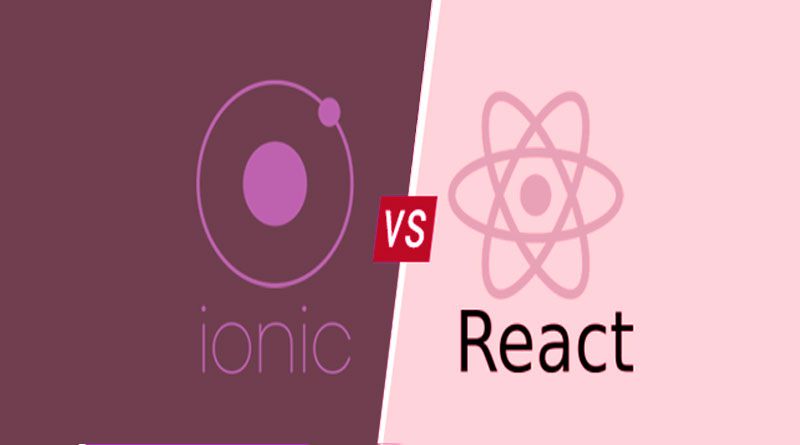In the world of App development, an application framework acts as the skeletal support to build an application. Therefore, developers often get confused when it comes to choosing the right framework to develop mobile apps.
In the market of mobile apps, Facebook’s React Native and Ionic are on the leading edge of this technology. Still, there is always a debate over which framework is the best Ionic or React Native?
Before that let’s understand the importance of an application framework. In simple words, it provides a fundamental structure to support the development of applications for a specific environment. Basically, it is a software library that tends to lessen the general issues faced during the development of applications.
In this the use of code that can be shared across different modules of an application development. The execution of Application frameworks is not constrained to specific categories such as graphical user interface (GUI) development, but also in other areas like web-based applications.
When it comes to which is the best option: famous Ionic or React Native? It takes time to choose. Though the preference is basically on the usage experience. But this is the most crucial question that exists in the market.
Ionic – Mobile App Development Framework
When we talk about Ionic, it is an HTML5 mobile app development framework. The flexibility provided by this platform has the main motto “Write Once and Run Everywhere.”
This cross-platform framework is basically designed to build hybrid mobile apps. The working is dependent on gadgets like PhoneGap and Cordova and links the gap of the non-native app.
Here are strong Points of Ionic Framework:
- It is Open Source SDK and is Expertise in the advanced technologies such as CSS, HTML AngularJS or Javascript components.
- The best part is that it is easily maintainable & Scalable.
- Write Once, Run and read Easily everywhere.
- Moreover, it is Designed with native-styled UI elements.
React Native – Mobile App Development Framework
React Native is famous and well-known Framework in the market. Moreover, it is developed by a software engineer at Facebook. It is mainly allowing the developers to build mobile apps for iOS and Android using JavaScript. Thus, it allows developers to utilize the existing code.
With the introduction of the mobile app development industry, it caused a great awareness. Facebook’s React Native has is a full-blown JS framework. The developers can create cross-platform software that is similar to native applications.
It acts as a catalyst that affects the performance of the app in a positive way. Apart from that, the best thing about it is that it uses native components for the front-end and does not require the employment of any browser.
Here are strong Points of React Native framework:
- Easy to integrate native features in Reusable Codes.
- In a short time, easy to discrete specific features for ios and android.
- Large community for ready node package using that we can make fast development and cost-effective.
- Great Response Time and there is no need to write the whole code again.
- Uses Native UI Components that are More stable & easier to maintain.
- It is an open Source & has a powerful performance.
Comparing Ionic and React Native
Comparison of the React Native Vs Ionic in similar environments.
- Performance
Hybrid Ionic apps use WebView that is the reason for extremely slow performance. Whereas talking about React Native is popular for its speed regardless of the platform. - Simplicity
The major concern of the App developers is that the different variations of codes should be used more one time. Therefore, both frameworks seem to be highly functional. And the best part is both of them can be “recycled” if necessary.Ionic’s codes can be used anywhere after its initial launch but React Native’s code still needs to be rewritten on the new platform. - Testing
Testing technique is a major difference between React Native and Ionic. Therefore, measuring this factor Ionic’s testing is regarded as more convenient, as it can be performed in any browser.Whereas, in react, Native testing is usually performed with the help of a good emulator or a real device.
Wrapping Up…
When we talk about the differences between Ionic and React Native depends on approaches towards the application development. Moreover, React Native lets you build a mobile application with the standard UI blocks but the Ionic framework does not provide such an advantage.
React Native & Iconic both being a skilled framework in terms of time and cost effective. React Native an appropriate choice when it is compared to the Iconic framework.
Whether it is a startup or an enterprise level app development React Native is most suitable for each mobile application development. Moreover, React Native offers a similar experience to Native app development.
Colleen Jansen is a digital marketing expert in Quy Technologies, a leading Mobile App Development company which provides Appdevelopment services for Education, Real estate, healthcare, Ecommerce industry across the global. She loves to write on latest mobile trends, mobile technologies, startups and enterprises.

